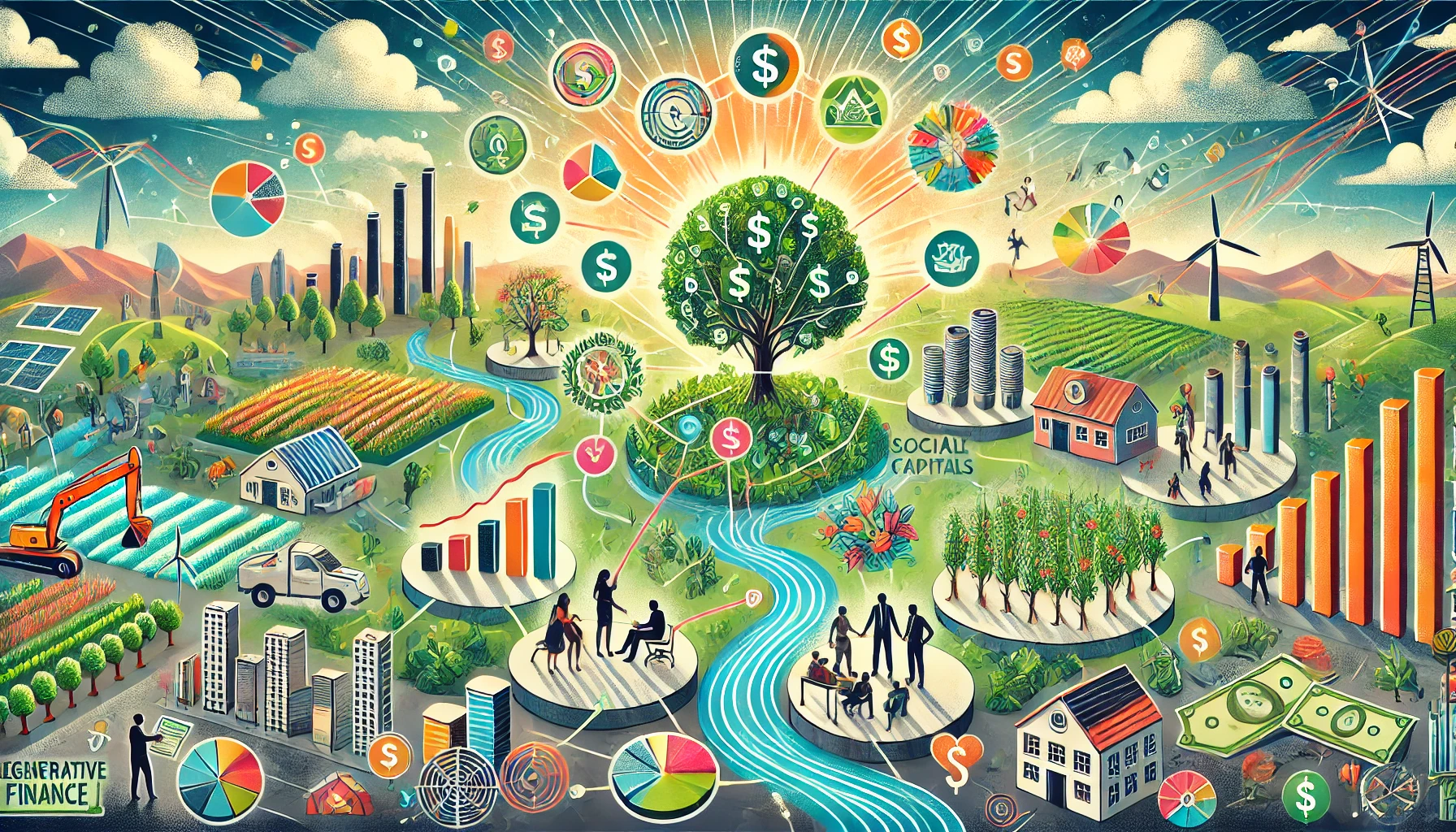Sovereign Seeds: Reclaiming MENA’s Agricultural Future
Reviving local food systems and unlocking rural prosperity

A year of headline-making attacks on the environmental, social, and governance approach to public market investing has obscured a larger truth: Interest in sustainable investing remains strong. In fact, it’s growing. Over 90% of millennials and Generation X individual investors surveyed for a recent Morgan Stanley study expressed interest in sustainable investing, and more than half said they plan to increase their allocations to sustainable investments this year.
That finding tracks long-term trends. “Wealth transition to Millennials will increasingly redefine the investment industry, and we expect to see growing demand for sustainable investing opportunities,” said Emily Thomas, Morgan Stanley Wealth Management’s head of investing with impact, in the firm’s “Navigating the Next Decade” report. “Financial advisors and investment managers, increasingly part of the Millennial generation as well, will continue to drive this growth as more clients demand sustainable investing options.”
Satisfying that demand requires moving beyond more of the same. Sustainability-minded investors have grown leery of ESG funds’ uncertain impact (more than 60% of those investors are concerned about greenwashing risks and the lack of transparency in ESG data) and are looking for new options. These investors and their advisers may be surprised to learn that the leading edge of impact investing — regenerative finance — offers alternatives across asset classes that deliver visible impact at relatively low risk. For most people interested in investment opportunities that offer a more holistic return, regenerative finance provides a path forward.

Simply put, regenerative finance uses money as a tool to solve systemic problems and regenerate communities and natural environments. Rather than simply investing in better-than-their-peers companies, regenerative finance aims to fix what’s broken and create shared value.
Regenerative finance integrates various types of capital — investments, loans, grants and more — in a way that’s tailored to maximize the success of social enterprises, community-led projects, and restorative cultural and environmental initiatives. It takes a holistic approach, accounting for interlocking causes and effects. And it deploys capital more equitably by revising exclusionary credit standards, involving core stakeholders in decision-making, and otherwise rebalancing the scales of economic control.
Simply put, regenerative finance uses money as a tool to solve systemic problems and regenerate communities and natural environments.
Portfolio managers are applying these principles in both issue-area funds and broad impact funds open to a range of investors. Issue-area funds that take a regenerative approach include Boston Impact Initiative, which invests in enterprises that are majority-owned by people of color, that create living wage jobs, and that empower decision-making for workers and community members. BII also invests in community-owned or -controlled real estate to prevent displacement in the Northeast. Another example is New Majority Capital, which helps diverse entrepreneurs acquire existing businesses from retiring baby boomers using capital from foundations, impact funds, donor-advised funds, and individual accredited investors. A third, Mad Capital, aims to drive a regenerative agriculture revolution with flexible loans that allow farmers to transition from conventional to regenerative organic, invest in soil health, develop new markets, and diversify their enterprise. The benefits of this transition include improved biodiversity, carbon drawdown, rural economic development, and better water quality.

At RSF, our Social Investment Fund supports loans to regenerative social enterprises creating long-term positive change. For example, Lotus Foods, a fair trade importer of heirloom and organic rice and rice ramen, incentivizes farmers to use an innovative approach to rice farming that consumes 50% less water and 90% less seed while producing two to three times more rice. Solar developer Sunwealth addresses climate change with an approach that protects the most vulnerable communities while giving them a real share in the clean economy. And Boldr, an ethical outsourcing company, aims to interrupt cycles of human exploitation and economic disparity by boosting access to digital training in underserved communities and creating career opportunities within global teams.
Regenerative finance funds allow investors to diversify portfolios across asset classes while achieving high impact and values alignment. As part of a fixed-income strategy, regenerative notes provide deep and sustained impact combined with relatively low risk. As part of a private equity strategy, regenerative investments deliver catalytic funding to potentially system-changing enterprises. And investments in nature-based assets like sustainable forestry and agriculture start to heal the harm caused by purely extractive industries.
Investors pursuing a regenerative strategy can expect holistic returns. The impact returns are exceptional: not only because of the benefits that flow directly from the enterprises supported, but also because regenerative finance’s integrated capital orientation opens opportunities for investors to coordinate their investing and giving to maximize progress toward their social and environmental goals. Financial returns to the investor are typically modest to moderate.
As the Morgan Stanley research indicates, demand for values-aligned investments is certain to grow. And for advisers and investors who want to support root solutions to our social and environmental challenges, regenerative finance offers increasingly accessible and varied options that deliver visible impact.
Related Content
Comments
Deep Dives

Featuring
Clarisse Awamengwi
IE Correspondent
July 17 - 12:00 PM EST

Featuring
Russell McLeod
July 24 - 12:00 PM EST
RECENT
Editor's Picks
Webinars
News & Events
Subscribe to our newsletter to receive updates about new Magazine content and upcoming webinars, deep dives, and events.
Become a Premium Member to access the full library of webinars and deep dives, exclusive membership portal, member directory, message board, and curated live chats.
At Impact Entrepreneur, we champion fearless, independent journalism and education, spotlighting the inspiring changemakers building the Impact Economy. Diversity, equity, sustainability, and democracy face unprecedented threats from misinformation, powerful interests, and systemic inequities.
We believe a sustainable and equitable future is possible—but we can't achieve it without your help. Our independent voice depends entirely on support from changemakers like you.
Please step up today. Your donation—no matter the size—ensures we continue delivering impactful journalism and education that push boundaries and hold power accountable.
Join us in protecting what truly matters. It only takes a minute to make a real difference.
0 Comments